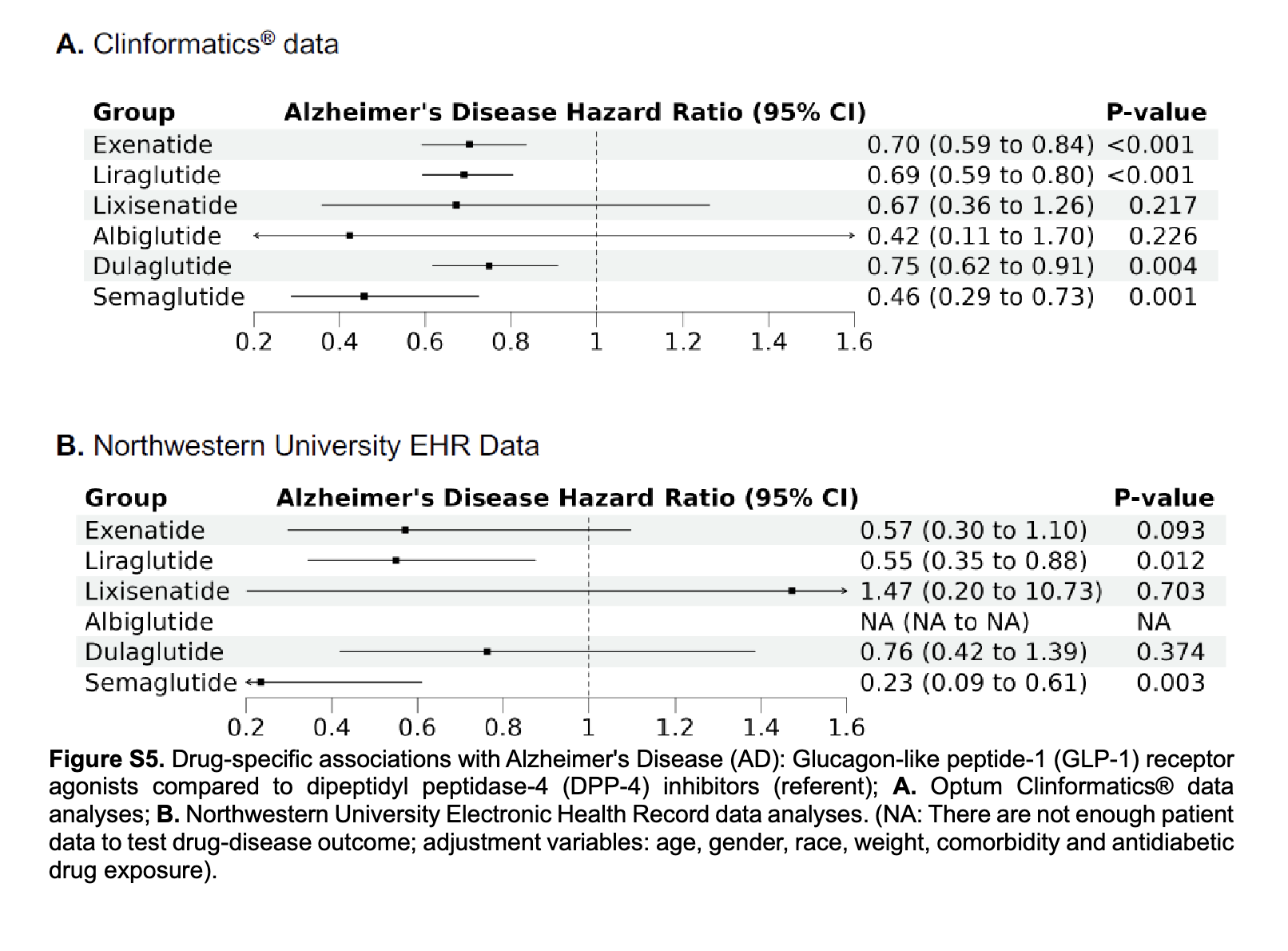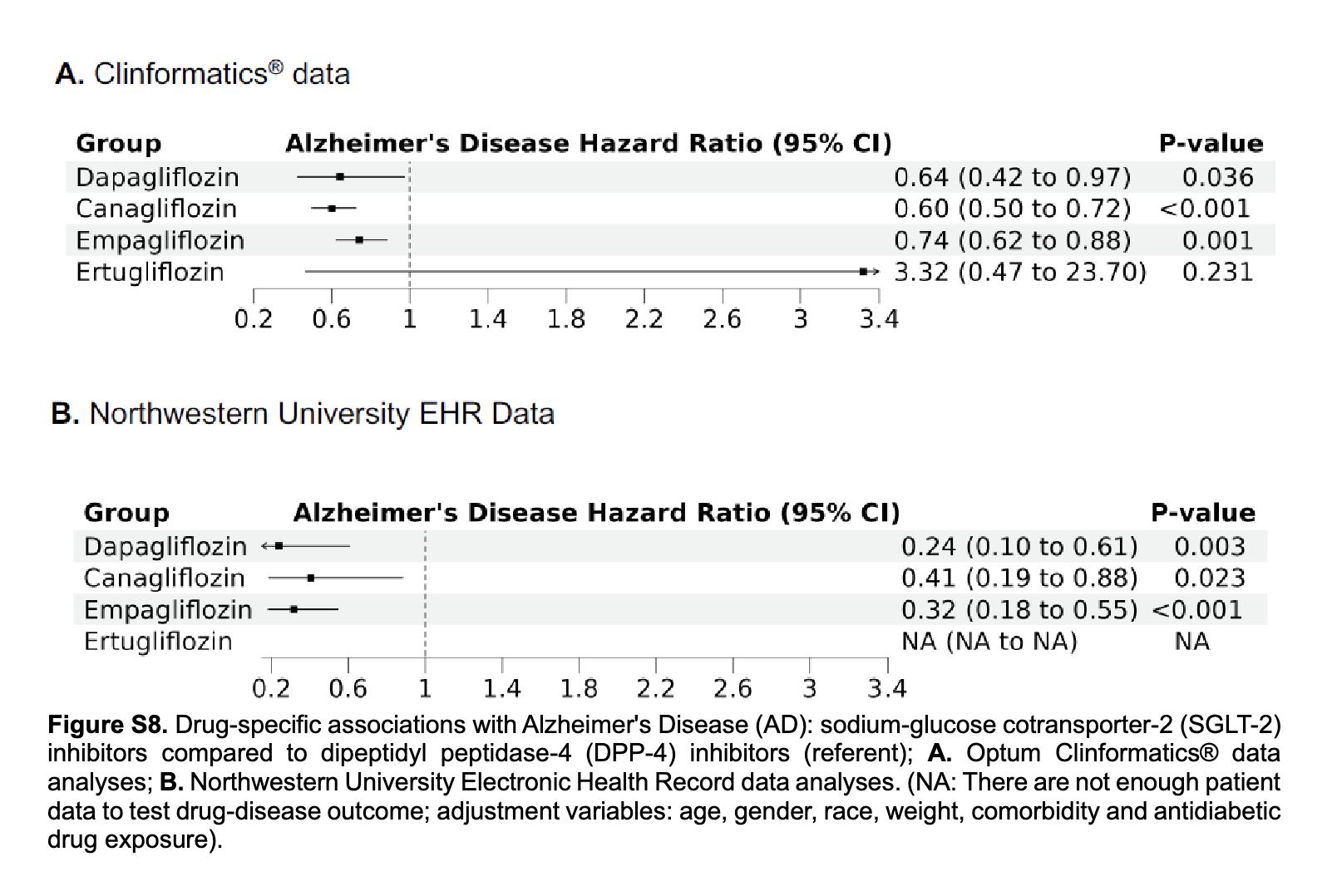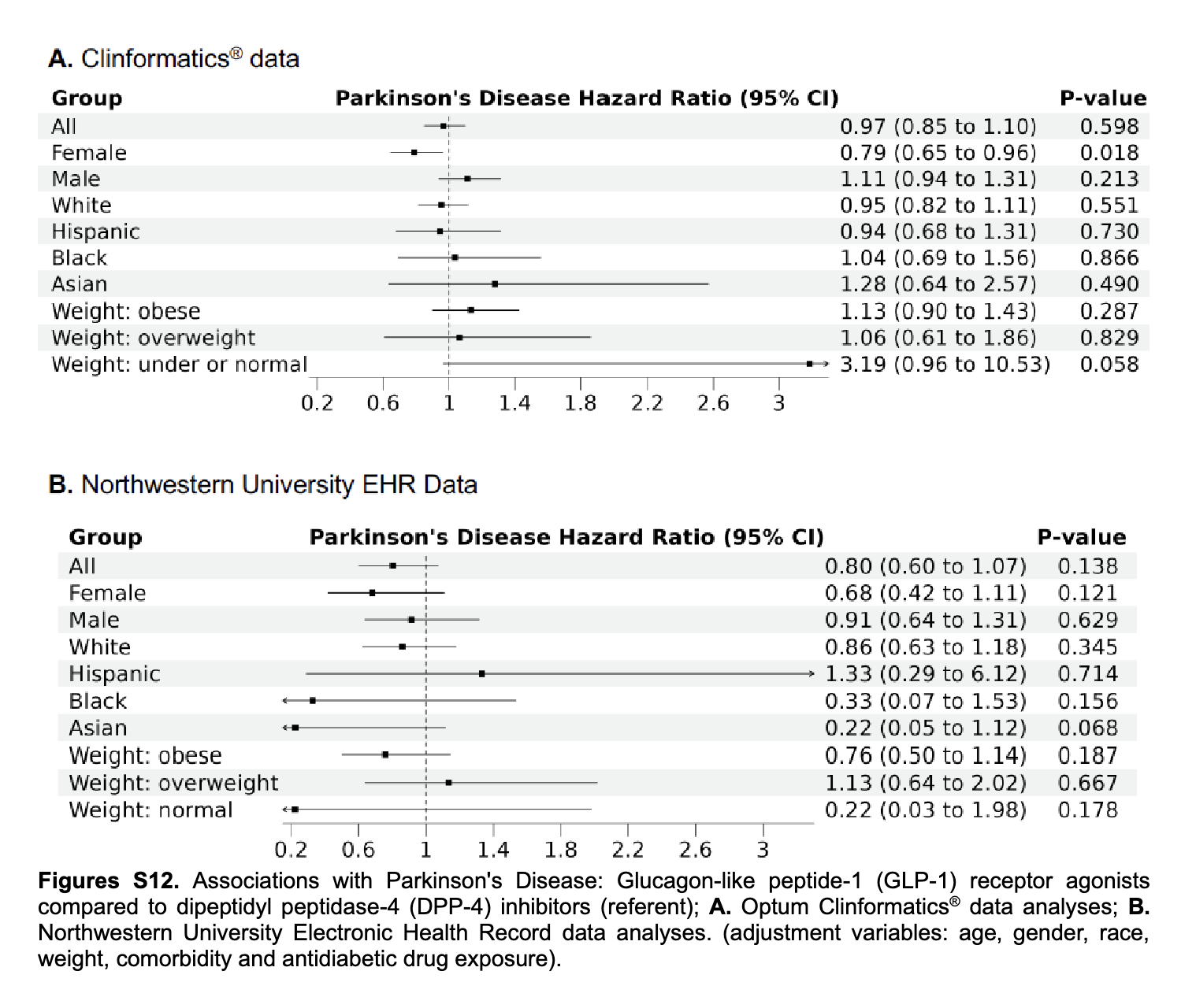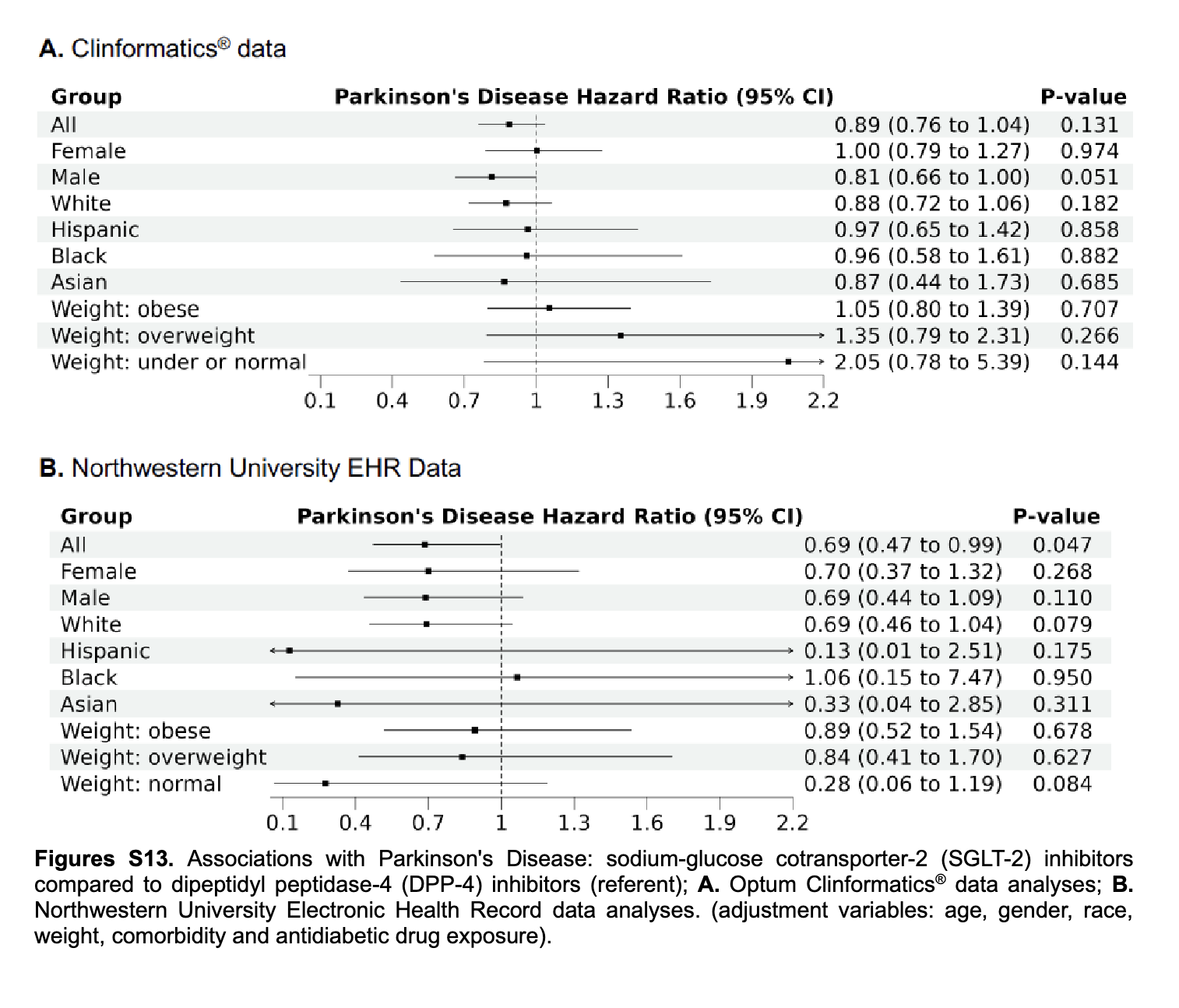That is an amazing paper, Antoine! It’s Chinese, so I would love to see it replicated elsewhere, but assuming everything is legit, it’s a very rich paper.
From my point of view, it heavily underlines something I think about all the time, and we all frequently speculate about: to what degree do these drugs have benefits for healthy users, i.e. people who don’t have the indication for which these drugs have been developed. We know that as pathologies develop (such as diabetes), the body attempts to ameliorate some negative effects through compensatory mechanisms, and therefore those bodies are different from healthy bodies not just because of the original defect and the subsequent pathology, but also because of compensatory mechanisms ameliorating aspects of the pathology. Therefore drugs addressing the pathology might act very differently in healthy bodies without that pathology, or compensatory mechanisms. This has similarities to situations where some physiological changes associated with aging can be adaptive mechanisms.
In any case, this is another cautionary note, to not assume that just because a drug has benefit X (like e.g. neuroprotection, dementia, etc.) in, say, diabetics, it will have the same effect in non-diabetics, perhaps be even harmful. A ton of studies showing neurological benefits and dementia risk reduction of SGLT2i and GLP-1RA is in diabetics - more interesting for those of us without T2DM is what the effect is in our cohort.
Here we see this illustrated (my bold and italics) - from the paper:
“After 16 weeks of dapagliflozin treatment, the FC in the POC-sensorimotor cortex-middle temporal cortex circuit was restored under odour stimulation, but liraglutide or acarbose did not. More specifically, odour-induced directed FC from bPOC to left PreCG/PostCG and IFG, and FC from left PreCG/PostCG to right middle temporal gyrus decreased compared to baseline of diabetes, but no difference from normal control. The reduction towards normative levels may reflect normalisation of compensatory signalling. These results suggest that in the absence of structural or functional abnormalities of POC, odour-induced functional integration of the POC circuit in patients with T2D is compensatory, and this functional integration can be restored by dapagliflozin treatment. This POC circuit involves the integration of multisensory input, motor function and memory processes.32-35”
For those of us without T2DM, we need more studies in a healthy cohort, such as those where SGLT2i are used in HF (or other CVD) without concomitant T2DM: impact on risk of dementia and NDD.
A separate interest would be whether the variegated and differential benefits of dapa vs lira seen in this paper would stack or interfere with each other if taken together, perhaps dose or sequence dependent, plus again also in non-diabetics.




